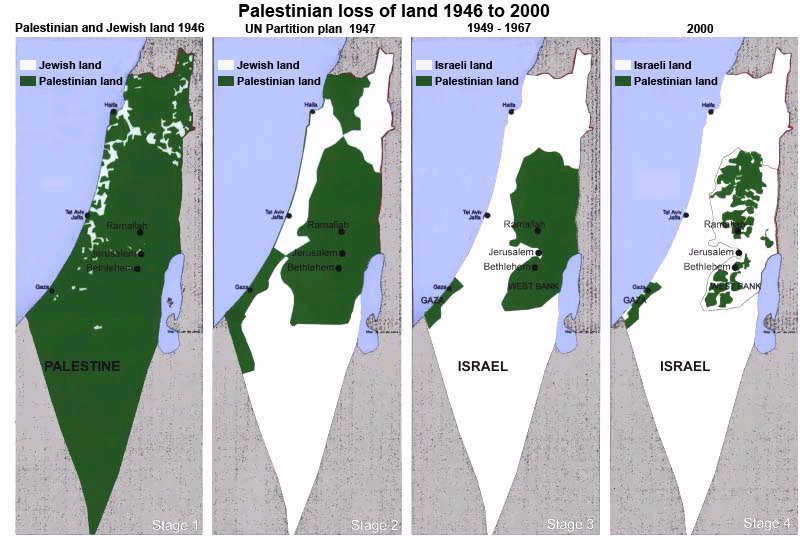Palestine
Egypt’s military rulers help imprison Palestinians of Gaza

A Palestinian (right) in Rafah on the Gaza-Egypt border talks to an Egyptian s
South Africa: ANC endorses 'boycott Israel' campaign
By Ali Abunimah
December 21, 2012 -- Electronic Intifada -- For the first time ever, the African National Congress (ANC), the ruling party in South Africa, today made the Palestinian call for boycott, divestment and sanctions (BDS) on Israel part of its official policy.
Mbuyiseni Ndlozi of BDS South Africa said the decision “by the ANC’s National Conference, its highest decision making body, is by far the most authoritative endorsement of the Boycott, Divestment and Sanctions (BDS) against Israel campaign”.
In a press release, BDS South Africa explained: "In October 2012, the ANC’s International Solidarity Conference (ISC) declared its full support for the Boycott, Divestment and Sanctions (BDS) against Israel campaign.
"Today, Lindiwe Zulu announced at the ANC’s 53rd National Conference plenary session, the ANC’s official endorsement .... Giving muscle to resolution 39 (b), the ANC has committed to set up a steering committee to implement these ISC resolutions.
Palestinian workers in Israel's illegal settlements: Who profits?

Palestinian, Israeli and
Malaysian socialists condemn Israel's Gaza massacre

Released by Choo Chon Kai, International Bureau, Parti Sosialis Malaysia (Socialist Party of Malaysia)
November 21, 2012 -- Parti Sosialis Malaysia -- The Socialist Party of Malaysia (PSM) condemns Israel for its latest brutal assault on the Palestinian people.
Israel has once again intensified its aggression against the Palestinian people of Gaza, by launching airstrikes since November 14, 2012. Israel has amassed troops on the border and threatened a ground invasion on the Gaza Strip. More than 100 Palestinians including at least 23 children have been killed since the new massacre called “Operation Pillar of Defense” began.
Israel escalated the assault on Gaza on the eve of its upcoming legislative election as its Prime Minister Benjamin Netanyahu is attempting to gain votes with Palestinian bodies.
The Zionist regime of Israel has attempted numerous times to destroy Hamas, the organisation that leads the struggle of the Palestinian people against oppression by Israel, since Hamas won the Palestinian election in January 2006. Such savage attempts include blockade of the Gaza Strip from 2007 until 2011, which turned Gaza into the largest concentration camp in the world imprisoning 1.5 million Palestinians living in dire conditions. The massacre by Israeli armed force in December 2008 to January 2009 killed more than 1400 people and wounded over 5300 people in a period of three weeks.
Palestine: Hugo Chavez condemns Israel's “savage” assault on Gaza Strip

Hugo Chavez criticised Israel's assault on the Gaza Strip as “savage” (Telesur).
By Ewan Robertson
November 16, 2012 -- Venezuelanalysis.com – Venezuela's President Hugo Chavez has condemned Israel’s latest assault on the Gaza Strip as “savage”, and called for an end to “aggression” against the Palestinian people. “Another aggression against the Gaza Strip has begun. Savage, savage: the state of Israel bombing the Gaza Strip again”, said Chavez to ministers yesterday in reference to Israel’s ”Pillar of Cloud” airstrike campaign against the Palestinian territory.
Israel began its offensive on November 14 by killing the military chief of the Palestinian organisation Hamas. Agencies report that 28 Palestinians and three Israelis have died in the conflict so far, with a further 250 Palestinians wounded.
The Venezuelan president argued that Israel's operation is occurring “because the [Palestinian] president Mahmoud Abbas has insisted that he’s going to request, once again, the entrance of Palestine as a full member state of the United Nations”.
Stop Israel's new massacre in Gaza: Boycott Israel now! -- Palestinian BDS National Committee

November 15, 2012 -- On November 8, Israel carried out an attack on civilians in the occupied and besieged Gaza Strip, shooting 13-year-old Ahmad Abu Daqqa while he played football with friends. By November 14, Israel had intensified its attacks on Gaza and begun to implement an intensive plan of aggression that at the time of writing has killed at least 15 Palestinians, including at least six children, and injured over 150, predominantly civilians.
Despite biased Western media reports to the contrary, it is clear that Israel has initiated and escalated this new assault [1] on the eve of its upcoming parliamentary elections, underlining the time-honoured Israeli formula of Palestinian bodies for ballots.[2]
It is worth noting that a great majority of the Gaza population are refugees ethnically cleansed by Zionist militias and later the state of Israel during the 1948 Nakba and denied by Israel their UN-sanctioned right to return to their homes of origin.

A protest in Parramatta, a suburb of Sydney, on November 15, 2012, called for an end to Israel's attacks on Gaza.
The Noynoy government must condemn Israel’s actions and support build-up of international pressure to stop Israeli aggression!
Statement byPartido Lakas ng Masa (PLM, Party of the Labouring Masses, Philippines)
